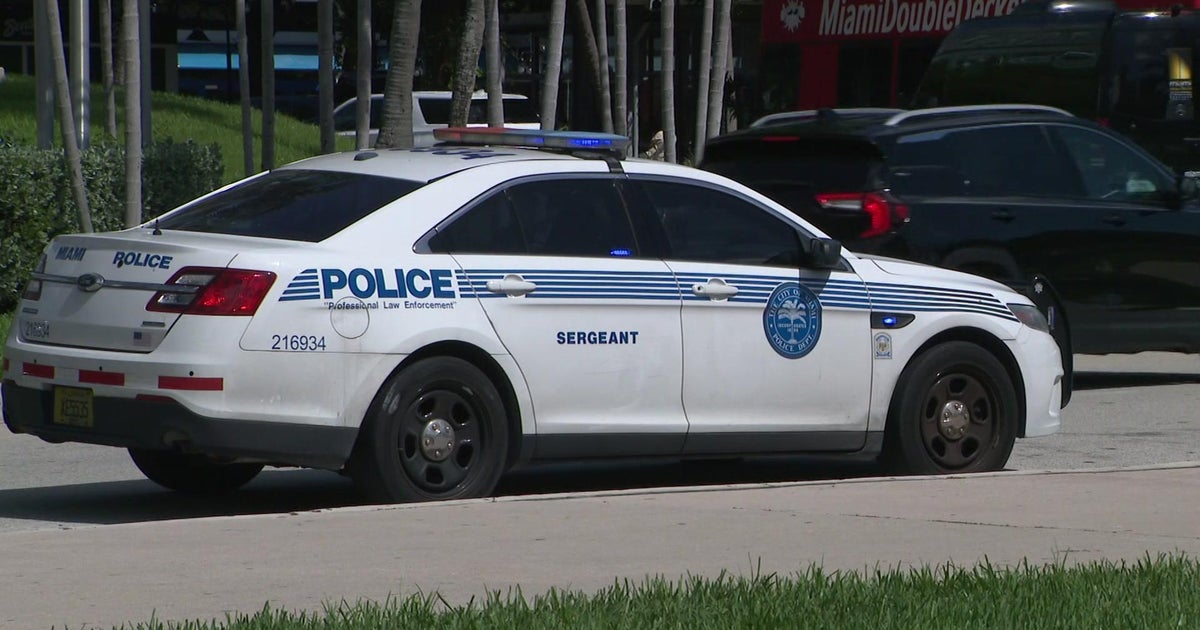USDA inspection report on Miami Seaquarium finds 2-inch nail in dolphin's throat, sea lion refusing to eat because of untreated cataracts
MIAMI — The Miami Seaquarium is once again under the microscope of the U.S. Department of Agriculture after the agency's latest inspection report found a sea lion refusing to eat because of untreated cataracts and a dolphin with a two-inch nail in its throat.
In its latest inspection report, which was published on January 9, the USDA has cited the South Florida marine life facility with multiple violations, including inadequate veterinary care, along with inadequate facility conditions, animal handling, sheltering, and sanitation.
The Miami Seaquarium has been the ire of criticism of both local lawmakers and animal rights activists, especially over the last several months in the wake of the deaths of two of its beloved animals: Lolita the orca and Sundance the dolphin. Despite the calls for permanent closure, the USDA said last month that the facility's operators have taken the "necessary corrective action to into compliance" following a threat to remove the housed animals.
Veterinary care
According to the USDA, whose inspection took place on Oct. 16, 2023, records showed that on numerous occasions, the attending veterinarian (AV) had made the determination that certain actions needed to be taken but the Miami Seaquarium failed to follow through.
One of these actions referred to was medical care for "Sushi" the California sea lion. According to the report, Sushi had been "holding her right eye closed and rubbing both eyes" on Sept. 26, 2023, and stressed the importance of getting her cataract surgery scheduled soon; however, the facility "did not take the initial steps to schedule the procedure." Two days later, medical records stated that Sushi was "slow to eat" and the AV had stressed that the sea lion needed the surgery. By mid-October, Sushi began "variably refusing food" because of her eye pain, the USDA noted.
The second significant incident that occurred involved "Ripley" the dolphin, who was presented to trainers with a "two-inch nail, mangrove pods, and small pieces of shell in his throat" on Sept. 22, 2023, the USDA stated. Then in October, another dolphin — "Bimini" — was presented with a broken bolt inside of her mouth.
Also, the medical records for "multiple animals" stated that the AV was unable to perform the necessary medical diagnoses and procedures because the Miami Seaquarium "no longer has access" to the needed medical equipment, such as an ultrasound machine, radiographs, a CT scan, a gastroscope or scales.
On top of the physiological problems the animals faced, some even were experiencing psychological issues, too.
According to the USDA, "Romeo" the manatee was still being housed alone in his pool, despite being told in a previous inspection that he needed to be housed with others because manatees are "semi-social animals." Additionally, the facility had not established a complete environment enhancement plan (EEP) to promote the psychological well-being of its birds, such as its penguins, flamingos and parrots, where three of the latter had evidence of "feather destructive behavior."
Facility conditions
Along with the medical issues mentioned previously, the USDA cited the Miami Seaquarium for several violations to its indoor and outdoor facilities for its animals.
For instance, in the trailer that provided housing for 11 parrots, there were two areas of the wall behind one of the cages that were damaged from a parrot chewing on it through the metal bars. Earlier this summer, there were three incidents where "Onyx" the dolphin jumped over a barrier between pools to join other animal groups, the USDA stated. Additionally, there was an "excessive accumulation of moisture condensation on the ceiling" of an indoor enclosure that houses nine penguins, which led to "numerous spots of black growth" and "bubbling and peeling paint" that started to droop into the enclosure. Also in the parrot enclosure, there was a "strong noxious odor" inside despite the Miami Seaquarium placing two air purifiers inside in an attempt to ventilate the enclosure. According to the USDA, the air quality inside the parrot enclosure contributed to air sacculitis — an inflammatory condition found in birds — in one macaw.
Also, the Miami Seaquarium's perimeter fencing had "multiple areas" where the bottom of the chain-link fence or gate was not flush with the ground and a section of barbed wire on top was drooping to the point that it was becoming perpendicular to the ground. In the Tropical Wings section, multiple indoor and outdoor metal enclosures showed evidence of "excessive rust"; and, the flamingo pool had area of poor drainage along the water feature where the ground eroded and a trough where part of the cement pond did not connect to a functional drain, causing the water to become murky with green algae, the USDA stated.
Animal handling
On August 1, 2023, "Zo" the dolphin was kicked in the mouth by a member of the public during an animal encounter. During the interaction, the guest did not grab onto Zo and the dolphin "sank and circled" the guest with his mouth open. Zo then ignored two signals from trainers to call him back as the guest was "frantically" kicking the water, leading to Zo getting kicked in the mouth. The guest, meanwhile, suffered a "superficial cut" to their ankle.
Sanitation
At the time of inspection, USDA officials also found that there were a "large number" of ants present on and inside the cabinets housing the vitamins and supplements for the marine mammals and birds, along with the front of the clinic itself.
In reaction to the recent report, PETA President Ingrid Newkirk provided the following statement:
"The Miami Seaquarium is a fiasco, a failure, a fraud, and a filthy dump for marine life to die in and must be closed down NOW. PETA is calling on officials to stop procrastinating and shut down this wretched hellhole immediately so that the animals imprisoned there can be sent to reputable facilities where they can finally get some relief."
You can read the full USDA inspection report below:



